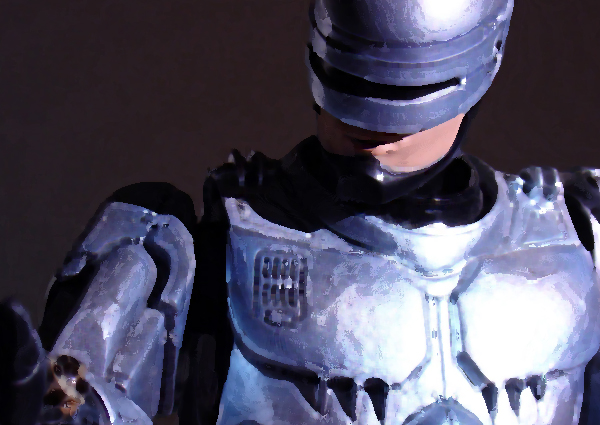


| Could A Robot Be Your Next Mediator? | |
|
The rise of the machines has been a fact of life for, literally, centuries, but it has been gathering pace over recent years to the point where it has made visible changes to the way we live.
For example, many mainstream retailers have replaced some of their staffed checkouts with automated checkouts, thus reducing (although not eliminating) the need for human workers.
Up until now, the jobs which were most likely to be performed by robots were simple, repetitive tasks (in fact, the sort which were prone to human error), but now robots are starting to make their mark in areas which have traditionally been regarded as highly-skilled.
From Robocop to robot lawyers
The 1980s produced a number of movies which examined the impact technology could have on our futures and, in particular, looking at the extent to which artificial intelligence could replicate human behaviours and characteristics.
The hit film Robocop hails from that era (1988) and looked at how a cyborg could perform as a police officer. Fast forward almost exactly 30 years and a robot lawyer managed to settle a real-world court case, albeit one for a low amount (just £2000).
Naturally, this has prompted a lot of debate in the legal world and, perhaps surprisingly, the reaction has not been entirely negative.
The law and the legal system - hard facts and soft skills
For all the many jokes about them, lawyers have tough jobs. On the one hand they need to be able to handle a lot of hard facts and process vast quantities of data. On the other hand, they need to be able to manage people, both in a court and out of it.
Robots/AI may be great at handling the “hard skills” aspects of the law, but it will probably be a very long time, if ever, before they are able to deal with the “soft skills” (or human aspects of it).
It’s noticeable that the case handled by “Smartsettle ONE” (the robot lawyer) was a fairly basic financial dispute without any real emotional impact for either side, rather than, say, a sensitive probate case hinging on whether or not a person was competent to make changes to a will.
It therefore seems very likely that the foreseeable future will see the emergence not of robot lawyers, but of robot paralegals, which will focus on collecting and analysing data, leaving their human colleagues to focus on using the sort of skills robots lack.
The soft skills of dispute mediation
Contrary to the impression given by the entertainment industry (and to some extent also factual journalism), lawyers are not necessarily falling over themselves with enthusiasm to get to court.
In actual fact, they are far more likely to prefer to reach an amicable (or at least mutually-acceptable) solution without the involvement of a judge (or jury).
This means that they either act as, or involve, mediators, who require a long list of soft skills.
First and foremost, they need to be able to establish a genuine rapport with both parties, even though the whole reason parties are undergoing mediation is because they are in conflict with each other - and they need to be able to do so quickly.
Then they need to hold the sweet spot between assertiveness and tact so that both parties are able to express themselves, including their emotions, without the situation descending into chaos.
Additionally, they need the listening and communication skills not only to pick up on what people are really saying, and draw it out of them if necessary, but also to guide people towards finding a mutually-acceptable solution.
This is a lot to ask even in situations where there is limited emotional involvement, for example, the dispute is genuinely just about a fairly low sum of money.
Many disputes, however, are like icebergs, the acknowledged point of the dispute is often only a small fraction of the actual issue, the majority of which will be lurking under the surface, but which will generally need to be uncovered and dealt with before either party can move on.
Some disputes also have the potential to create a lot of collateral damage, for example to children, and hence need to be handled with all the sensitivity a human can offer, but a robot cannot. Elizabeth Bilton is an accredited mediator and qualified solicitor for Midlands Dove, with a specialism in family law disputes.
Elizabeth Dove is one of only a few Mediators in the UK with an appropriate FMC accreditation to sign off on MIAMs required by the Family Court prior to an application being issued.
PHOTO CREDIT: MAECELO BRAGA
|
|